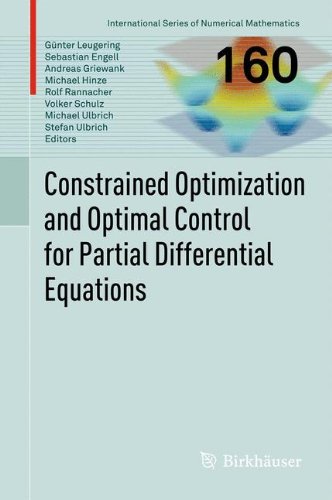

Most ebook files are in PDF format, so you can easily read them using various software such as Foxit Reader or directly on the Google Chrome browser.
Some ebook files are released by publishers in other formats such as .awz, .mobi, .epub, .fb2, etc. You may need to install specific software to read these formats on mobile/PC, such as Calibre.
Please read the tutorial at this link: https://ebookbell.com/faq
We offer FREE conversion to the popular formats you request; however, this may take some time. Therefore, right after payment, please email us, and we will try to provide the service as quickly as possible.
For some exceptional file formats or broken links (if any), please refrain from opening any disputes. Instead, email us first, and we will try to assist within a maximum of 6 hours.
EbookBell Team

5.0
38 reviewsThis special volume focuses on optimization and control of processes governed by partial differential equations. The contributors are mostly participants of the DFG-priority program 1253: Optimization with PDE-constraints which is active since 2006. The book is organized in sections which cover almost the entire spectrum of modern research in this emerging field. Indeed, even though the field of optimal control and optimization for PDE-constrained problems has undergone a dramatic increase of interest during the last four decades, a full theory for nonlinear problems is still lacking. The contributions of this volume, some of which have the character of survey articles, therefore, aim at creating and developing further new ideas for optimization, control and corresponding numerical simulations of systems of possibly coupled nonlinear partial differential equations. The research conducted within this unique network of groups in more than fifteen German universities focuses on novel methods of optimization, control and identification for problems in infinite-dimensional spaces, shape and topology problems, model reduction and adaptivity, discretization concepts and important applications. Besides the theoretical interest, the most prominent question is about the effectiveness of model-based numerical optimization methods for PDEs versus a black-box approach that uses existing codes, often heuristic-based, for optimization.